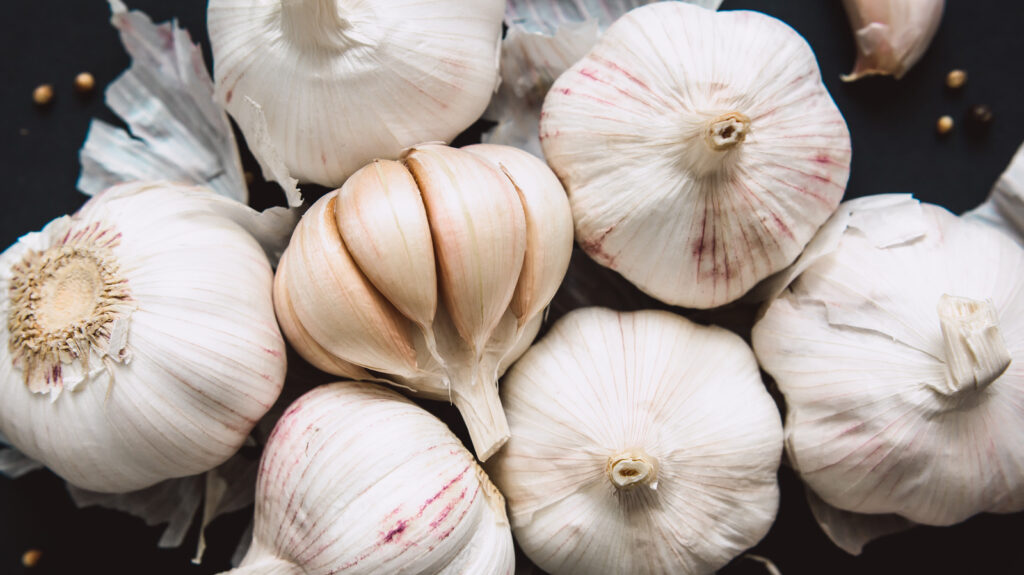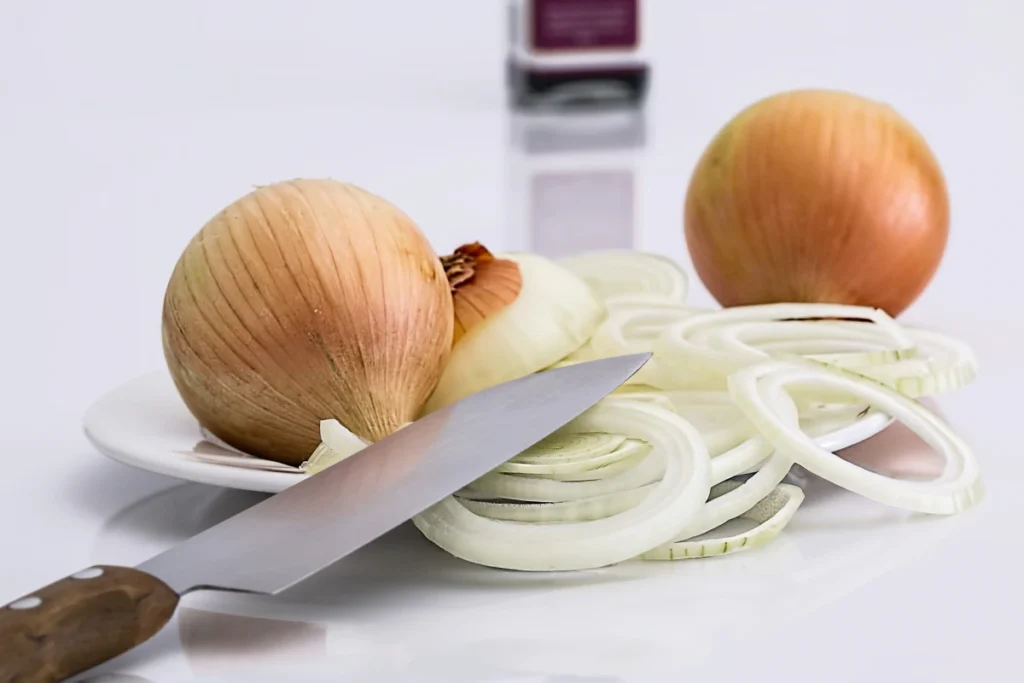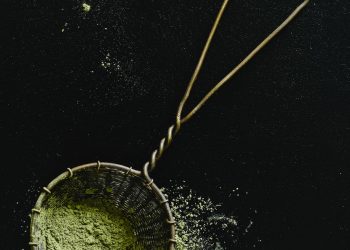More commonly known as stuffy nose, nasal congestion refers to the obstruction in the nasal passages due to inflamed membranes inside the nose [1].
According to experts, it is typically caused by cold, sinusitis, flu, and rhinitis. It can also be triggered by certain irritants such as dust, pollen, or tobacco smoke.
Although nasal congestion is rarely a sign of a serious ailment, it can be bothersome.
You can find quick relief from nasal congestion and its symptoms using some natural decongestants.
In the following article, you will find some evidence-based home remedies for nasal congestion, its causes, and symptoms.
READ MORE: 14 Quick Ways to Get Rid of Mucus Naturally
13 Home Remedies for Nasal Congestion
1. Orange Juice
An orange contains two things that are good for your stuffy nose.
First, it is rich in vitamin C, which according to studies, can alleviate nasal congestion by treating the common cold [2, 3].
In a study that was published in the Canadian Medical Association Journal, a comprehensive trial was performed to test the efficacy of vitamin C as a common cold treatment [2].
Findings show that daily intake of one gram of vitamin did reduce the number and duration of colds per subject [2].
There was also a notable 30 percent decrease in the “total days of disability” among vitamin C takers [2].
In another study, this time, featured in the British Journal of Nutrition, it was found that vitamin C consistently reduced the episodes of common cold, as well as alleviated the severity of symptoms including nasal congestion [3].
It appears that vitamin C reacts with oxidants and decreases the inflammation that they cause [3].
Also, orange has synephrine, an alkaloid that acts as a decongestant that loosens mucus in the nasal passages.
2. Garlic
A perennial herb cultivated worldwide, garlic is used medicinally for its wide range of pharmacological properties [4].
After all, it has been hailed many times as the world’s wonder herb.
Some of its most widely known properties are antimicrobial and immunostimulant [4].
These are great for those who suffer from nasal congestion.
Viral and bacterial infections of the respiratory system can cause blockage in the nasal passages so the garlic can help by combating these harmful microorganisms.
As an immunostimulant, it can boost the body’s immune resistance to make it less susceptible to respiratory infections.
Apart from these, it is also a notable decongestant that can be a handy solution for plugged nasal passages [4].
In a 2001 study, 146 participants were made to take in either a garlic supplement or a placebo for 12 weeks [5].
It was reported that garlic supplements can treat cold infection and protect the body from cold virus attacks [5].
Those who consumed the garlic supplement had fewer episodes of colds and less severe symptoms compared to those in the placebo group [5].
3. Saline Solution
Saline solutions have long been used for disinfection as well as treatment of certain ailments.
Its efficacy on the common cold, sinusitis, sinonasal disease, and other infections that cause blockage in the nose has been demonstrated in numerous studies [6, 7, 8].
At the University of Wisconsin Medical School-Madison, USA, researchers conducted a randomized controlled trial involving 54 patients with chronic or recurrent sinus infections [6].
Among these patients, those who were asked to use saline solutions reported improved conditions [6].
Interestingly, this natural remedy did not cause any harmful side effects [6].
Irrigating the nasal cavity with this solution also moisturizes it and helps get rid of encrusted material that makes breathing difficult [8].
4. Echinacea
Most of the health benefits linked to Echinacea are attributed to its immunological properties [9].
For those who are suffering from nasal blockage, this herbal remedy is said to help by clearing out the common cold [10, 11, 12].
In 2001, German scientists assessed the effectiveness of Echinacea in 80 patients with first signs of cold [10].
The use of Echinacea resulted in a decrease in the duration of the illness, helping the patients recover more quickly from respiratory infection [10].
Apart from its therapeutic efficacy, Echinacea has also been found to be an efficient preventive measure for this ailment [12].
Since it has immunostimulatory properties, this herb can help power up the body’s immune defense, and protect it more efficiently from viral and bacterial infections.
5. Fenugreek
What do you know about fenugreek?
This herbal plant is actually replete with many incredible benefits for the health.
The leaves and seeds of fenugreek are widely used as traditional medicine in many oriental countries [13].
Fenugreek has long been used by traditional healers for problems such as fever, dandruff, stomach pain, mouth ulcer, high cholesterol, diabetes, insomnia, and inflammation, among many others.
This plant has also been the go-to herbal remedy for respiratory ailments such as colds, flu, asthma, pneumonia, sore throat, and bronchitis [13].
It has active compounds that can neutralize and control the microorganisms that cause these infectious diseases.
The spread of bacteria and viruses can be prevented by using fenugreek as a remedy.
By clearing these respiratory infections, this herb can help relieve nasal congestion and give you the comfort that you’ve been looking for.
READ MORE: 14 Benefits of Fenugreek for Your Health (Backed by Science)
6. Onion
Onion is not just a popular herb used in culinary, it is also a highly valued herbal remedy used for many types of ailments.
There are many ways this herb can help boost your health.
For one, it abounds in phytochemicals that can strengthen immunity.
Also, it has blood sugar-regulating properties that can help people who have diabetes.
It is also a powerful anti-inflammatory that’s popularly used for healing skin infections.
As if all these are not enough, you should also know that the quercetin in onions is a potent antioxidant that can act as an anti-allergy, preventing and treating cold infections [14].
Moreover, it helps relieve nasal congestion by loosening thick mucus in the nasal membranes.
7. Eucalyptus Oil
There’s so much that you don’t know about eucalyptus oil.
Apart from leaving a soothing and cooling sensation when applied to the skin, this oil actually has a lot more benefits that you should get to know more about.
It works as an anti-inflammatory, antiseptic, antibacterial, antispasmodic, and immunostimulant.
Those who’d like to put an end to the unpleasant nasal congestion should get also get hold of this oil, as it is a natural decongestant.
In a study conducted at The Elizabeth General Hospital in New Jersey, USA, 24 healthy individuals who suffered from common cold were assigned to inhale either a combination of aromatic vapors that included eucalyptus, or a placebo [15].
After 60 minutes of inhalation of the aromatic vapors, and after intranasal spraying of 0.25% phenylephrine solution, the participants felt much better and no longer suffered from breathing difficulties [15].
It was concluded that eucalyptus oil can significantly improve cold infection and nasal congestion [15].
This is not a surprise, since this essential oil is notable for stimulating the immune system and combating bacteria and viruses, it is highly effective in treating different kinds of respiratory problems including the common cold [16].
It also works on drug-resistant microbes such as methicillin-resistant Staphylococcus aureus (MRSA) [16].
8. Ginger
When it comes to medicinal plants, ginger is always one of those that top the list.
Scientists have long verified that the folkloric use of ginger is justified as it can indeed cure a wide range of health problems.
It’s best for nausea and vomiting and can do so much in relieving stomach upset and other gastrointestinal disturbances.
It’s also good to know that ginger can help alleviate nasal congestion.
In a 2008 study, which can be found in the Global Journal of Pure and Applied Sciences, it was reported that ginger’s active compounds such as ethyl acetate can treat various diseases including the common cold [17].
In addition, ginger also contains flavonoids that make it an efficient antiretroviral agent, preventing the onset of rhinoviral infections [18].
This is why ginger is a popular solution for respiratory ailments that cause annoying symptoms such as a nasal blockage.
READ MORE: 20 Great Ways Of Using Ginger To Fight Your Acne
9. Peppermint Tea
One of the most frequently used ingredients for herbal teas is peppermint [19].
Who doesn’t love its rich flavor and minty aroma?
It’s a must to know that peppermint tea is more than just a delicious beverage.
Scientific evidence shows that phenolics in peppermint have strong antiviral, anti-microbial, and immunomodulating effects as well as potential anti-allergy properties [19].
It can easily combat the viruses and bacteria that infect the respiratory tract.
It also powers up the defense mechanisms of the body’s immune system so that it would be more difficult for harmful microorganisms to penetrate and cause harm.
All these make it an ideal remedy for nasal congestion and the conditions that cause this symptom.
10. Black Pepper
Black pepper does more than just make you sneeze.
This popular spice native to India has been used since ancient times for its medicinal purposes [20].
Amazingly, black pepper is a fantastic solution for constipation, indigestion, muscular pain, dental problems, diarrhea, heart disease, and anemia.
It is also believed to be an effective remedy for the common cold and other respiratory ailments [20].
Apart from its strong antimicrobial properties, it is also microkinetic that loosens mucus to provide relief from nasal congestion.
11. Carom Seeds
Also called ajwain, carom seeds are commonly used in traditional medicine for their antibacterial properties [21].
Did you know that aside from bacterial infections, carom seeds can also help resolve congestion in the nasal passages?
The aroma from carom seeds is said to flush out congesting materials in the nasal cavity [22].
In other words, it can help get rid of the mucus that’s plugging the nasal passages so that you won’t find it difficult to breathe anymore.
Since carom seeds are packed with essential nutrients and antioxidants, your health will also benefit when you make use of this remedy.
12. Apple Cider Vinegar
Apple cider vinegar or ACV is perhaps one of the best home remedies for the nasal block. The inexpensive kitchen ingredient can provide immediate relief for stuffy heads and noses.
Apple cider vinegar is a potent combination of acetic acid and alcohol. The compounds act as a natural decongestant and help break down the accumulated excess phlegm. Moreover, ACV is an immune booster against the common cold and flu.
READ MORE: 6 Tasty Ways You Can Use Apple Cider Vinegar to Lose Those Extra Pounds
13. Cayenne Pepper
Cayenne pepper is one of the various types of Capsicum annuum. The hot spice is widely famous for flavoring dishes. The medicinal use of cayenne pepper dates back to 9000 years.
In case you are looking for an effective sinus nasal congestion home remedy, just reach for the jar of cayenne pepper in your kitchen cupboard. The major chemical compound capsaicin in the pepper is a natural decongestant.
Its fiery effects can unblock the stuffy sinuses and relieve inflammations in the nasal passages in no time.
What Causes Nasal Congestion?
There are many causes of nasal congestion. Some of them are:
- A case of acute sinusitis
- Different types of allergies
- Chronic sinusitis
- Churg-strauss syndrome
- Common cold
- Decongestant nasal spray overuse
- Deviated septum
- Drug addiction (substance use disorder)
- Dry air
- Enlarged adenoids
- Foreign body in the nose
- Hormonal changes
- Influenza or flu
- Certain types of medications, like high blood pressure drugs
- Nasal polyps
- Nonallergic rhinitis
- Pregnancy
- Respiratory syncytial virus (RSV)
- Stress
- Thyroid disorders
- Tobacco smoke
- Granulomatosis with polyangiitis (Wegener’s granulomatosis)
When to See a Doctor for Nasal Congestion
Nasal congestion can be a symptom of an underlying condition. Therefore, if you have any of the following symptoms then you should not waste time but go and see the doctor as soon as possible:
- Symptoms are lasting more than 10 days
- You are running a high fever
- The nasal discharge is yellowish or green in color. Also, you have pain in the sinus or a fever.
- Blood in the nasal discharge
Bottom Line
Nasal congestion is very uncomfortable. You lose the sense of smell temporarily. Moreover, a stuffy nose can result in headaches and fever.
The traditional decongestant and allergy drugs have a lot of side effects. In milder cases, it’s better to try home remedies than over-the-counter medications.
With simple but safe and effective home remedies, you can find immediate relief from nasal congestion as well as the respiratory ailment causing this symptom.
READ NEXT: 13 Easy Ways to Get Rid of Phlegm





